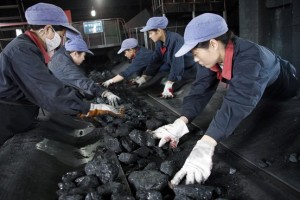For some time now, quiet talk in the corners of metals conferences has turned to the question of Chinese metals smuggling, with the rare earths as Exhibit A. How extensive is REE smuggling? Simon Moores of Industrial Minerals, writing from the Industrial Minerals Congress & Exhibition (IM21) in Budapest, Hungary reports that:
“Western consumers of rare earths are more reliant on illegal material than they may realise…. Vasili Nicoletopoulos, of Natural Resources GP, explained that smuggled rare earths account for 15% of light element supply to western consumers and up to 50% of heavy element output.”
Contrary to conventional assumptions that China’s command economy puts all control under the Politburo in Beijing, smuggling out of southern China — home to many of the ionic clay deposits that host the Heavy Rare Earths — is a serious concern. Paradoxically, efforts to rationalize rare earths production across China, coupled with tighter export controls, “incentivizes” smuggling. For rare earths or other critical metals, the tighter the formal control over the official market, the greater the reward – price-wise – for metals smuggled out and sold to waiting global buyers.
Once illicit metals are mainstreamed, the nature of global-sourcing and the geographic distribution of manufacturing value chains make it comparatively easy to fudge or otherwise ignore their provenance. (See the difficulties in policing DRC Congo’s “conflict metals.”) The economics for Chinese metals smugglers is a strong pull, too: no pesky government reporting with fees attached – of course, minus the graft one assumes is necessary to grease the exit of the metals from Chinese ports.
Then there’s the ultimate non-economic downside: serious time in a PRC prison for smugglers who get caught – or death at the hands of other smugglers who prefer to keep the illicit Rare Earths business to themselves. After all, there’s no limit to what people will do in a country where farmers get by on $800 USD GDP per capita while a single kilogram of Terbium fetches $4,000 USD.
That said, if, as Moores reports, as much as half of the world supply of Heavy Rare Earths owes its origins to the smuggling business, Beijing’s success in curtailing smuggling could cut global HREE supply in half — with little or no warning. Add that to the list of reasons it’s time for the U.S. to accelerate its own domestic development of these critical metals.





